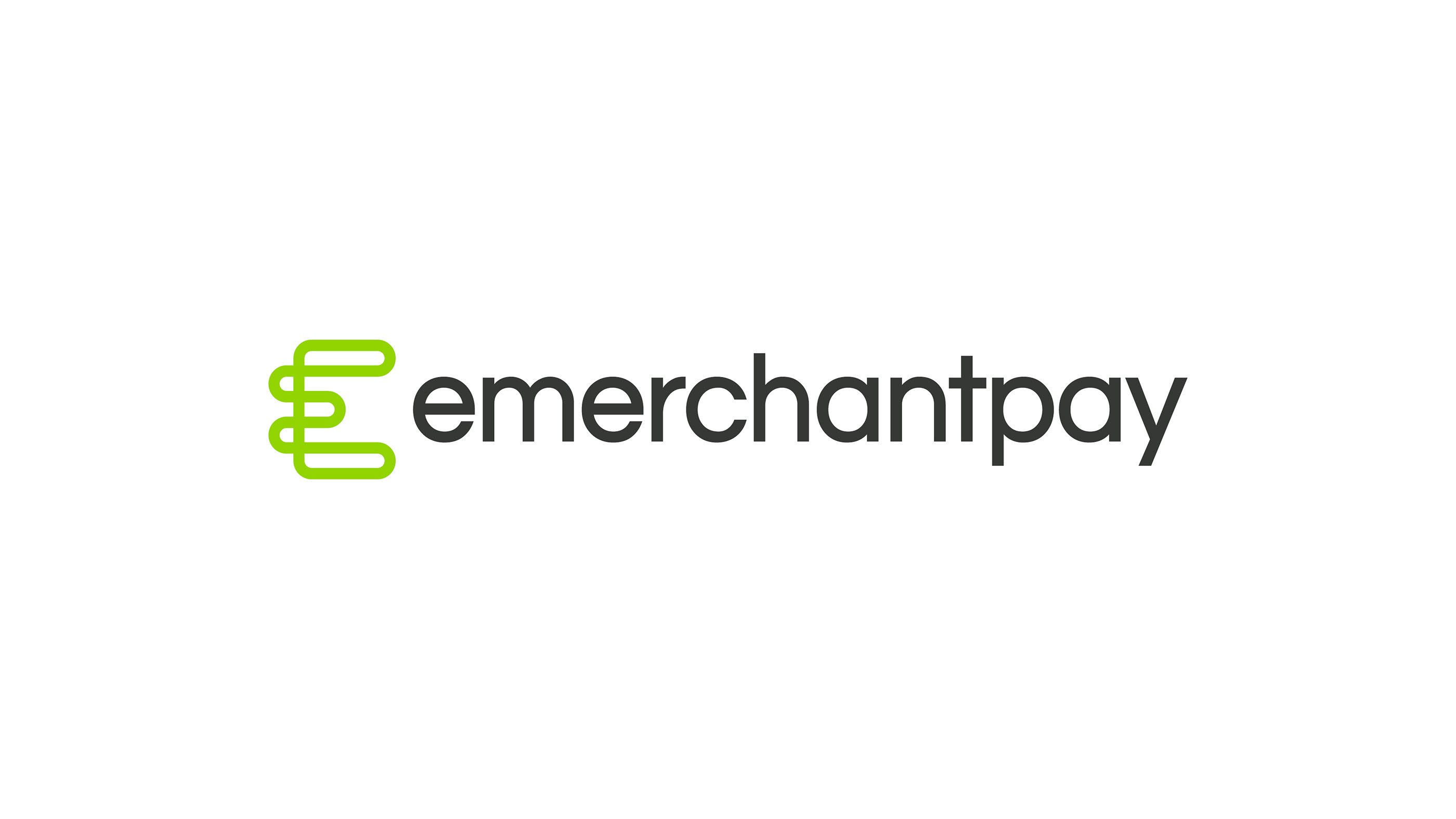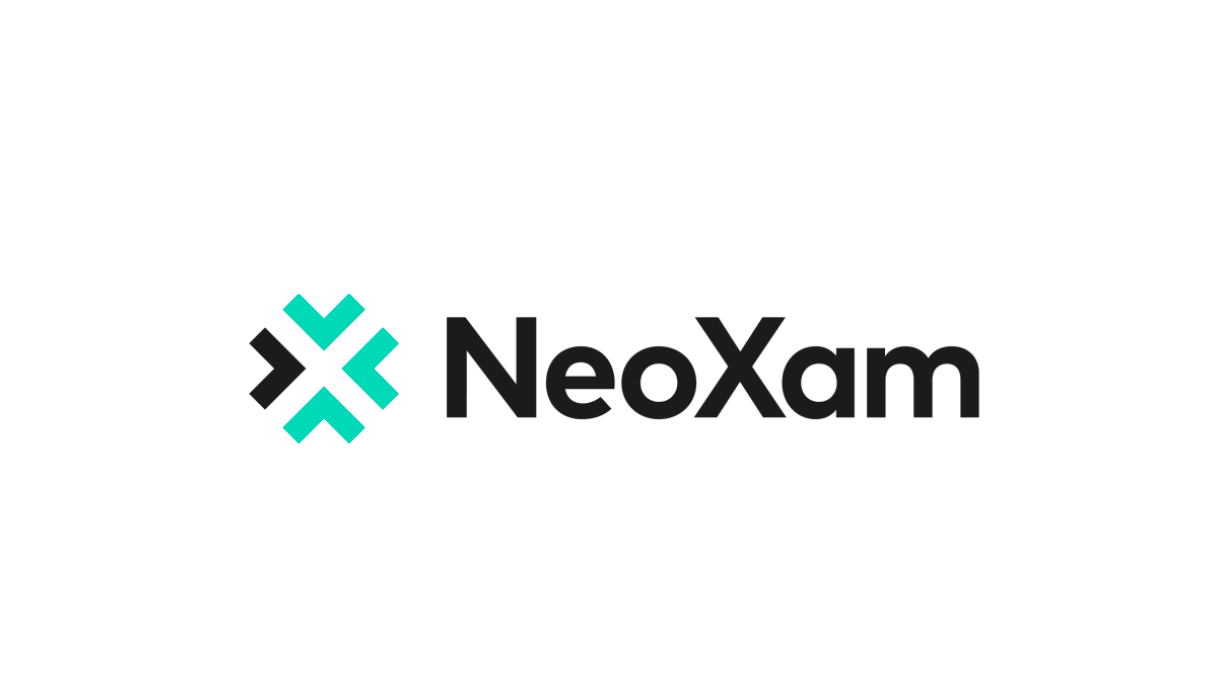Published

Christian Damour
Pre-sales Manager at Security at Fime
- 05:00 am

Today, leading global payment service provider, emerchantpay, publishes the first instalment of its New World, One Market Report, a new research study examining consumer behaviour when it comes to post-pandemic payment preferences. Chapter One of the study reveals that the national shift to digital payments, which has been dramatically accelerated due to the COVID-19 pandemic, is here to stay.
Despite British high-streets reopening on the 12th April, it appears that the pandemic has caused irreversible change when it comes to consumer behaviour. Our own research found that one in five consumers said they’d be inclined to shop less on the high street now versus before the pandemic. This equates to £74.6bn potential revenue opportunity for online retailers. Equally, retailers that don’t seize the chance to go online could be missing out on a significant consumer audience.
This move away from the high street is particularly apparent in older shoppers, with over a quarter (27%) of Gen X (42-57 year olds) and Baby Boomers (58-76 year olds) less likely to shop on the high street post-pandemic, in addition to 25% of The Silent Generation (77+ year olds).
For those that do choose to shop in-store, payment habits have changed. A quarter (25%) said they will use their mobile phone more to make payments in store now versus before the pandemic. Responding to this demand, retailers need to adopt a multi-channel strategy that offers their consumers flexibility by supporting payments and purchases across multiple platforms.
Diminishing footfall on UK high streets is nothing new, but the sudden acceleration of online shopping across all demographics presents challenges for retailers that do not have a unified commerce strategy or the correct payment infrastructure in place. The pandemic has pushed digital technology into the mainstream, and merchants should look to take advantage of this by optimising products, services and payment processes for eCommerce, as well as ensuring in-store infrastructure caters to today’s payment preferences. Increasingly, seamless real-time unified payment solutions must be prioritised in a retailer’s overall commerce strategy.
Jonas Reynisson, emerchantpay's Founder and CEO comments: “This research comes at a pivotal moment for British retailers, many of whom are having to rethink their entire business model to survive in the post pandemic world. By sharing tangible insights into the behaviour and preferences of today’s consumer, we can support retail businesses as they strengthen their payment strategies in the months ahead. While the findings may vary by generation, what’s clear is that a unified commerce strategy is more important now than it has ever been."
Further chapters of the research will be published in increments over the upcoming weeks.
Related News
- 02:00 am

xpate, the payments platform that priorities simplicity, speed and user experience, is streamlining the management of card payments even further with the launch of its new payment gateway and operational support project – xpate Links.
xpate Links helps to remove a major operational burden for acquirers thanks to end-to-end handling of the payment processing software management, full technical support, fraud control, and execution of the entire dispute cycle, including managing the acquirer’s merchant disputes. Acquirers no longer need extensive in-house teams of fraud, dispute and technical support specialists since these complicated processes can be outsourced to xpate Links.
The single and unified solution has been launched to meet growing demand from acquirers requiring end-to-end fraud control, dispute management and reporting at a time when outdated legacy platforms are struggling to keep up with soaring ecommerce volumes. Around two-thirds of acquiring growth is expected to come from ecommerce channels by 2022, with the traditional processing model being left behind as acquirers seek more holistic solutions which unify all touchpoints.
The white-label turnkey payment gateway solution, which is easily and seamlessly integrated directly with the acquirer’s processor and its incident management system, offers global online omnichannel payment card acceptance, including Visa and Mastercard card processing.
Additionally, xpate Links includes an extensive range of consulting services related to International Payment Systems (IPS), including detailed product and service research on specific topics including tools for merchant underwriting, help in finding the most suitable IPS’ products and services for acquirer’s business needs, compliance with IPS rules, as well as support in obtaining membership status in IPS.
Viktorija Raizina, Managing Director of xpate Links, commented: “Our ethos is centred around creating a simple and rewarding payment experience. xpate Links allows acquirers to streamline typically clunky, time-consuming processes like fraud control, dispute management and data reporting.
Acquirers increasingly want a simplified operational flow that takes the complexity out of their day-to-day business and helps them expand faster with increased payment acceptance rates. This is crucial given how soaring ecommerce sales are pushing acquirers to lower operational risks, cut costs and optimise payment flows to help meet future demand as the world recovers from the pandemic.”
xpate Links includes intelligent and intuitive fraud control and management capabilities:
- Individual fraud prevention set up for the acquirer or an individual acquirer’s merchant.
- Transaction monitoring, combined with manual review of suspicious transactions.
- Limits and sanctioned countries defined by the acquirer’s AML are implemented in gateway settings.
- Control fraud levels within IPS thresholds.
The in-built flexibility of xpate Links means that it can quickly adapt to an acquirer’s information or status amendment, and the acquirer’s merchants get the reassurance of 24/7 technical support including payment gateway integration activities and testing. Comprehensive fraud reports are also generated and provided to acquirers, removing yet another operational burden.
Raizina added: “With its cutting-edge functionality, xpate Links allows acquirers to free up resources by outsourcing complex operational tasks and to focus on revenue recovery through streamlined dispute prevention and resolution, fraud control, payment gateway management and 24/7 technical support.
With the difficult payments aspects taken care of, acquirers are free to do the important thing – grow their business.”
For more information about xpate, go to: www.xpate.com.
Related News
- 07:00 am

In today’s data-driven world, the banking industry relies too heavily on legacy data privacy enhancing technologies. This reliance, together with the restrictions on financial data usage imposed by regulation, is inhibiting data-driven innovation across the industry. These are just some of the strategic insights conveyed in a new research report launched today by Mobey Forum’s AI & Data Privacy Expert Group.
The new report entitled ‘The Digital Banking Blindspot: Emerging Privacy Enhancing Technologies’, explores how a new breed of emerging privacy enhancing technologies (PETs) can be used to mitigate risk and enable business innovation. It also argues that a ‘privacy blind-spot’ is becoming increasingly critical in today’s financial services climate, where organisations are constantly challenged to balance innovation without compromising how sensitive data is stored or shared.
“Banks face many obstacles when taking a data-driven approach to innovation,” says Amir Tabakovic, CEO and founder, Experiens.ai, and AI & Data Privacy Expert Group Co-chair. “Widely adopted legacy privacy technologies are now failing and increasing privacy-related risks. This can quickly become a complex topic, with issues being impacted by legal, business and technology factors. Understanding the underlying problems can be difficult and, thanks to rapidly changing privacy landscape, many legacy solutions can no longer be applied to today’s challenges. The net result is the stalling of both internal innovation and the creation of multi-stakeholder ecosystem use-cases. This is the current blind spot.”
The report highlights a new breed of emerging PETs that create potential for financial service organisations to both significantly reduce existing privacy risks and allow the implementation of privacy-by-design principles. “Emerging PETs are bringing forward new approaches to fill the void and clear the path to innovation. The speed at which banks can adopt these new approaches will determine their capacity to get ahead of the game in data-driven innovation,” adds Tabakovic.
The Report stresses that if the industry can adopt a strategic approach to PETs, its key institutions may finally escape the privacy vs value creation dilemma, in which privacy protection occurs at the expense of innovation (and vice versa).
Ville Sointu, Head of Emerging Technologies, Nordea and AI & Data Privacy Expert Group Co-chair, comments: “The digital banking industry is walking a fine-line between consumer protection and collaborative innovation. Across the board, financial institutions must find a way to create new value out of data without compromising privacy. A new approach is required, one that enables emerging privacy enhancing technologies to solve some of the key challenges in this space, such as how to process anonymous and encrypted data without losing value, even when no details about private data is shared.”
Elina Mattila, Executive Director of Mobey Forum, commented, “Mobey Forum exists to enable precisely these kinds of problems to be shared, analysed and, ultimately, overcome in a commercially neutral setting. Our goal is to empower banks and financial institutions to better shape the future of digital financial services. AI and data privacy are currently pivotal issues within banks. If they are to successfully develop their own AI-driven processes, products and services, it is vital that they adopt a strategic approach to overcoming today’s regulatory challenges.”
Mobey Forum’s AI and Data Privacy Expert Group was formed in March 2020 to address how banks and other financial institutions can strike the balance between data privacy, security and innovation in the age of Artificial Intelligence (AI). This report is the first in a two-part series. The second part is anticipated later in 2021 and will take a deeper dive into the different PETs, their variable stages of maturity, and their potential to solve some of the most urgent privacy risks that banks face today.
To download the report, and find out more about Mobey Forum and its Expert Groups, please visit the website here: https://mobeyforum.org/the-digital-banking-blindspot/
Related News
- 01:00 am

New programming complements Mastercard investments in minority-focused VCs including Authentic Ventures, Fearless Fund, CNote and The Astia Fund
Venture capitalists invest less than 3 percent of funding to Black founders, resulting in fewer success stories. Mastercard today announced the launch of a new Start Path track dedicated to supporting traditionally underrepresented fintech founders as the company continues its work to ensure minority-led startups have access to the funding necessary to scale.
The new programming is part of Mastercard’s In Solidarity commitment of $500 million in products, services, technology and financial support to help close the racial wealth and opportunity gap. While Start Path has historically engaged growth and expansion stage startups, this new pathway will provide support for early-stage startups led by Black, Indigenous, People of Color and women. These startups will receive stage-relevant support, including enterprise partnership readiness training, mentorship and coaching, as well as curated commercial and investor introductions. Mastercard will consider grants or investments in participating startups on a case-by-case basis.
“To achieve inclusive growth, which ensures that the benefits of a growing economy extend to all segments of society, people need access to the vital networks that power the modern economy. But access to these physical, virtual and social networks is not equally available,” said Michael Froman, Vice Chairman and President of Strategic Growth, Mastercard. “A remarkably small percentage of venture capital is invested in Black-founded startups, and the new Start Path programming track is a critical step in connecting Black entrepreneurs with the necessary resources to launch and expand their start-ups"
The first participant to join this program is SpenDebt, which automates consumer debt repayment, and joined Start Path in April. The programming was informed by insights provided by underrepresented founders, including those of Start Path alumni Goalsetter and Mobility Capital Finance. Both companies have now received capital investments from Mastercard to help provide financial services to underserved communities with a specific focus on providing tailored digital tools, and new payment cards to low wealth minority and Black communities.
“We are humbled and excited about the opportunity to leverage Mastercard’s global footprint as part of their Start Path program. The partnership validates SpenDebt in the marketplace and accelerates our growth trajectory,” said Kiley Summers, Founder, SpenDebt. “As a Black founder, it’s been extremely difficult to access capital and penetrate enterprise customer networks, but resiliency and faith have sustained us. We look forward to extending our frictionless digital payment solution to Mastercard’s partners, customers and network.”
Start Path participants receive direct access to the company’s channels, customers and product teams as well as immersive virtual events and programming to uncover co-innovation and growth opportunities. All startups will also be paired with a dedicated Start Path sponsor who will act as their program champion and work to ensure they receive relevant support, as well as a Mastercard mentor whose expertise matches their business area.
Early-stage startups can apply to the program via the Start Path online application form.
Support for Small Businesses
Mastercard has long been an advocate for the small business community and reinforced its investments through launch of the Strivers Initiative. The campaign is dedicated to elevating Black entrepreneurs overcoming obstacles to maintain and grow their business, and who can act as role models for the community and future generations, while encouraging consumers and businesses alike to shop, share and support them.
The Start Path program introduction furthers Mastercard efforts to ensure access to capital for underserved entrepreneurs. This includes investments in venture capital firms and equitable investment organizations including Fearless Fund, CNote, Authentic Ventures and the Astia Fund to ensure minority-led startups can access the capital they need to successfully grow their businesses affordably and efficiently.
Mastercard has also partnered with Community Development Financial Institutions (CDFIs), including Grameen America, Accion Opportunity Fund, and the Community Reinvestment Fund, USA, to expand access to capital and loan relief for underserved communities, with $250 million delivered since 2018.
These efforts are delivering on Mastercard’s sustained commitment to building a more inclusive digital economy including its commitment to bring 50 million small and medium-sized businesses into the digital economy, specifically helping 25 million women entrepreneurs grow their businesses.
Related News
- 03:00 am

Global payments service provider SumUp today announces it has collaborated with Google Pay to allow merchants to make safer and quicker business transactions using SumUp Card.
Existing SumUp Card-holders in the UK, France, Italy, and DACH, will now be able to add the SumUp Card to their phone wallet, and start using it for business payments in stores, online, and with other Google products. Other merchants can also create virtual cards via Google Pay to start using all the benefits of the SumUp Card until the physical card arrives.
Google Pay is the fast, simple way to pay with Google, bringing together everything a SumUp merchant would need at checkout and keeping their payment info safe in their Google Accounts until they’re ready to pay.
Google Pay also makes it even easier for SumUp merchants to pay and check out. SumUp Card holders won’t need to remember all card details or fill out endless forms on their phones. Instead, merchants will be able to pay on the move with a few clicks and spend less time checking out.
The SumUp Card is a free Mastercard that gives merchants next-day access to the payments they receive through SumUp, even on weekends. Merchants can use the card online, in-store or at the ATM – wherever Mastercard is accepted. SumUp Card grants faster access to money and can be used for all business expenses, while providing merchants with a clearer overview of their cash flow.
Dimitri Gugunava, VP Banking at SumUp comments: “At SumUp, we’re always looking to help our merchants find new ways to improve their businesses, particularly as we move out of this pandemic and hopefully towards a more economically positive future.
“Collaborating with Google Pay is a really important development for us, because it means we can remove layers of friction for small businesses who need to make quick (but safe) payments on the go.”
To download Google Pay for SumUp Card, please visit: https://pay.google.com
Related News
- 05:00 am

The Dreams financial wellbeing platform - which is now embedded in UKRSIBBANK’s mobile banking app - will help the Ukrainian bank’s 2 million customers keep their finances on track and improve their financial lives.
The updated mobile banking app will also help UKRSIBBANK enhance its digital user experience, drive customer engagement and boost loyalty.
Dreams (www.getdreams.com), the leading provider of behavioural and engagement banking solutions for some of the world’s largest financial institutions, has today announced the launch of its financial wellbeing platform in partnership with Ukrainian commercial bank UKRSIBBANK BNP Paribas Group.
Dreams’ next-generation financial wellbeing platform is now embedded into UKRSIBBANK’s mobile banking app, giving its 2 million customers across Ukraine access to a full range of additional functionalities from which they can set and achieve money-saving goals through clever, automated saving features, in addition to nudges and hacks.
The launch represents the first product to stem from a strategic partnership between Dreams and UKRSIBBANK, in which the Ukrainian bank is leveraging Dreams’ proprietary financial wellbeing technology, and behavioural science methodology.
The integration will help UKRSIBBANK to significantly revamp its digital banking offering with a more personalised and engaging user experience, which will drive customer satisfaction by boosting the financial wellbeing of its customers, and help to attract new audiences. The Dreams platform will also provide UKRSIBBANK with additional revenue streams and growth opportunities, by encouraging users to boost their personal savings and thus enabling the bank to significantly increase its savings under management.
According to a recent survey by Gradus, a market and sociological research company, 86% of Ukrainians have had a dream or a goal that they weren’t able to fulfil due to financial shortages. Through UKRSIBBANK’s updated mobile banking app, millions of potential customers across Ukraine will now have access to a financial product which will provide them with the necessary tools and skills to be better at saving money, and ultimately, live a more fulfilled and sustainable life.
Henrik Rosvall, CEO & co-founder of Dreams, comments:
“We’re delighted to be launching our product in Ukraine and to be helping millions of more people make better financial choices and feel better about their money. With Ukraine’s large population of digitally savvy millennials, eager to engage with their digital bank, we’re confident that our financial wellbeing platform is the perfect fit to help UKRSIBBANK build long-lasting loyalty to its brand, cater to the needs of new audiences and lead the way in terms of engagement banking.
We started Dreams with the vision of not only empowering people to feel better about their money but also of changing how an entire generation of people interact with financial services. By embedding our financial wellbeing platform into UKRSIBBANK’s mobile banking app, we are on track to bringing this bold vision to light and achieving our mission on an even greater scale, whilst helping our partner bank to future proof its digital banking offering.”
Konstantin Lezhnin, Head of Retail & SME at UKRSIBBANK BNP Paribas Group, comments:
“This partnership with Dreams marks a really important step in our mission of guiding our customers towards responsible consumption and sustainable personal finance management. Beyond providing our customers with a rich user experience enabling them to better understand and improve their financial wellbeing, the Dreams platform will allow us to create new dimensions of customer engagement and drive additional revenue and growth opportunities.
We’ve been really impressed with how Dreams has managed to leverage behavioural science insights to drive product innovation and achieve such a high market share in the Nordics. With such a solid track record in Sweden and Norway, we believe that Dreams’ scientific approach and unique methodology, combined with our customer-centric and user-focused outlook, provides a great formula for success, and will help millions of Ukrainians take control of their own finances and dreams.”
How UKRSIBBANK’s new ‘Dreams’ experience works:
Dreams leverages an effective and universal method, based on behavioural science, to offer users a personalised and engaging savings experience. Through the Dreams platform, users, rather than the bank, are in control of how they handle their money and what they save for.
Once UKRSIBBANK customers have updated their mobile banking app they will have access to the Dreams “savings” product suite, from which they can open a special savings account, set a ‘dream’ or saving goals, and choose to activate multiple saving hacks.
The saving hacks are powered by different algorithms which leverage certain behavioural science principles and gamification to challenge users to improve their financial lives and change their spending habits for the better. Through these innovative hacks, users can benefit from automatic and seamless transfers of money from their current account to their ‘Dreams’ savings accounts. Altogether, there are 16 localised saving hacks to choose from. The two most popular hacks include:
‘The Thief’ - the in-app thief ‘steals’ varying, small amounts each week from the user’s salary account and adds it to their ‘Dreams’ savings account.
‘Autopilot’ - automatically calculates and withdraws from the user’s bank account the amounts necessary for them to reach their dream on time, taking into consideration other saving hacks activated and manual savings made by the user. If no other hacks are activated, automatic withdrawals are made on a weekly basis.
The rest of the saving hacks are rooted in behavioural change, inciting users to save money by changing their lifestyle and implementing more sustainable consumption and spending habits. These include “Quit Smoking”, “Skip Takeout Food” and “Exercise Outside”, to name a few.
Beyond in-app savings, Dreams also offers asset and debt management products to enable users to allocate the money they have saved through the app towards debt repayments or fund investments.
Dreams initially started out as a consumer app in Sweden and Norway, where it has already achieved critical success, having acquired a 16% market share of all 20-39 year olds, and having helped more than 460,000 users save an additional €2000 per year. The launch of the Dreams platform in Ukraine marks a significant step in the company’s bid to consolidate its international growth strategy, as it looks to expand globally by evolving its services as a B2B provider of digital banking solutions for large financial institutions.
Related News
- 05:00 am

NeoXam, a leading software company for financial markets, has announced the appointment of former SIX Financial Information MD, Mark Hembury, as Head of Sales for the Germany, Austria, Switzerland, Liechtenstein (DACH) and Central & Eastern Europe (CEE) regions.
Hembury held several senior roles across a six-year period at SIX, including Global Head of Sales and Account Management, Head of Global Sales Operations and Head of Strategic Account Management. With over three decades in the field of market and reference data, his experience also includes successful spells at Thomson Reuters, Moody’s Investor Services, and Reuters.
Reporting into the General Manager of the DACH and CEE region, Philipp Sfeir, Hembury will be responsible for accelerating new business growth across NeoXam’s product suite as well as helping develop existing client relationships.
“In today’s world, data has become increasingly important in enabling financial institutions to succeed. In order to ensure this success, businesses must utilise premium technology as a key component of data strategies,” said Hembury.
“The need for customers to manage and leverage multiple data sources in an efficient and cost-effective manner was a key driver in my joining NeoXam. I look forward to working with such a successful, forward thinking team and to supporting the next stage of growth in the DACH and CEE regions,” Hembury concluded.
Philipp Sfeir at NeoXam, added: “Attracting someone with a wealth of market and reference data credentials to the team is a testament to the progress we are making as a business. With his significant level of experience and deep understanding of our product offering, Mark will be integral in servicing and expanding our client base as we continue to empower financial institutions to derive greater value out of their data.”
Hembury, who started his new position in April, is based in NeoXam’s Zürich office.
Related News
- 01:00 am

After emerging as a meme cryptocurrency, dogecoin's rise is cemented by the trading volume that has temporarily placed the cryptocurrency in the same ranks as established digital currencies like bitcoin and ethereum. The trading volume highlights the magnitude of interest dogecoin has recorded in recent months.
According to data acquired by cryptocurrency trading simulator Crypto Parrot, DOGE was the third most traded cryptocurrency on the largest digital asset exchange Binance with a volume of $116 billion in May. On the exchange, ethereum recorded the highest trading volume at $191 billion, followed by bitcoin at $188 bitcoin.
On the Huobi crypto exchange, DOGE also ranked third with a trading volume of $51 billion, trailing second-ranked bitcoin by just $13 billion. Ethereum also topped with a volume of $85 billion.
Why dogecoin is recording high trading volume
The significant dogecoin trading volume reflects the cryptocurrency's exponential rise in value in 2021. From the start of the year to the end of May, the crypto's value had surged 7,900%.
The rise of dogecoin can be attributed to the fact that the asset is community-driven, and the value has mostly been determined by power and influence on social media by influencers. Notably, Tesla CEO Elon Musk is instrumental in the rally by consistently tweeting his support for the cryptocurrency.
The trading volume also shows that traders have managed to sustain the hype around DOGE despite the price correction. In recent months, traders have continued to speculate that the coin can keep climbing based on social media momentum and celebrity support. However, the speculations left investors vulnerable after almost the entire crypto market slump led by bitcoin.
Furthermore, dogecoin gained special attention in May after Musk announced that Tesla would no longer accept bitcoin for vehicle purchases due to environmental concerns. He noted that the company is looking for an alternative energy-efficient crypto, with many speculating that dogecoin is a possible replacement.
The speculation potentially drove interest in dogecoin. At the same time, Musk announced SpaceX's next mission to the moon would be found by dogecoin, a development that offered the crypto its first formidable utility. Notably, if more companies adopt DOGE for payments, then crypto can easily become a wide-scale functional currency since it might have purchasing power.
Bitcoin’s May troubles reflected in trading volume
Elsewhere, in May, bitcoin encountered a rough path, with the price dropping by almost 50% from the April 14th all-time high of $64,800. The impact in the price is partly due to the increased regulatory crackdown in jurisdictions like China and increased focus on the asset's energy consumption. In addition, the impact is reflected on the trading volume that trails ethereum.
Additionally, Tesla's suspension of bitcoin potentially slowed down institutional interest as more traditional players moved to protect the interests of environmentally conscious investors. Notably, institutional adoption of bitcoin was key in driving the asset's price this year.
Generally, dogecoin's tremendous trading volume on the two major exchanges indicates that the asset is competing against established cryptocurrencies. On the flip side, analysts have warned that DOGE's rally might be a bubble that will burst soon because the crypto has no proven utility and lacks a formidable support base.
Related News
- 02:00 am

- SERIXTM data sheds light on pan-European retail investor sentiment last month
- Sentiment turned sharply bearish towards UK pound, as well as Spain and Italy
- Northern European indices remain stable, while S&P 500 grows less bearish
Spectrum Markets, the pan-European trading venue for securitised derivatives, has published its SERIXTM European retail investor sentiment data for May (see below for more information on methodology), with notable trends including bearish sentiment towards the UK pound, as well as Italian and Spanish indices.
Sentiment on the UK pound turned sharply bearish last month, recording SERIXTM values of 91 against both the Japanese yen and US dollar respectively, down from 104 and 99 in April. SERIXTM data also revealed continued bullish Euro sentiment against the pound, with the EUR/GBP indicator reading 107, compared to 108 in April.
Sentiment towards northern European indices remained broadly stable in May, while retail investors were less positive on Italy and Spain however, with both the MIB and IBEX dropping into bearish territory, falling to 98, compared to 106 and 107 respectively in April.
“With the British pound enjoying a strong month against the yen and dollar, particularly during the second half of May, the bearish SERIXTM sentiment seen on GBP/USD and GBP/JPY underlyings suggests European retail investors held limited expectation of further rises and sought to capitalise on downward price movements in the short term,” notes Michael Hall, Head of Business Development at Spectrum Markets.
During May, 63.8 million securitised derivatives were traded on Spectrum, with 35.5% of individual trades taking place outside of traditional hours (i.e. between 17:30 and 9:00 CET). 85.7% of this activity was on indices, 8.9% on currency pairs and 5.4% on commodities, with the top three traded underlying markets being OMX 30 (32.5%), DAX (20%) and S&P 500 (12.5%).
Looking at the SERIXTM data for the top three underlying markets, the OMX 30 continued the trend towards bullish seen since the start of the year, moving from 94 in April to 97 in May, while the DAX dropped into bearish territory, falling from 101 to 99. The S&P 500 remained just in the bearish zone with 99, but this marked a significant jump from 90 in April.
Calculating SERIXTM data
The Spectrum European Retail Investor Index (SERIXTM), uses the exchange’s pan-European trading data to shed light on investor sentiment towards current development in financial markets.
The index is calculated on a monthly basis by subtracting the proportion of bearish trades from the proportion of bullish trades, to give a single figure (rebased at 100) that indicates the strength and direction of sentiment:
SERIXTM = (% bullish trades - % bearish trades) + 100
Trades where long instruments are bought and trades where short instruments are sold are both considered bullish trades, while trades where long instruments are sold and trades where short instruments are bought are considered bearish trades. (For a detailed methodology and examples, please visit this link).









